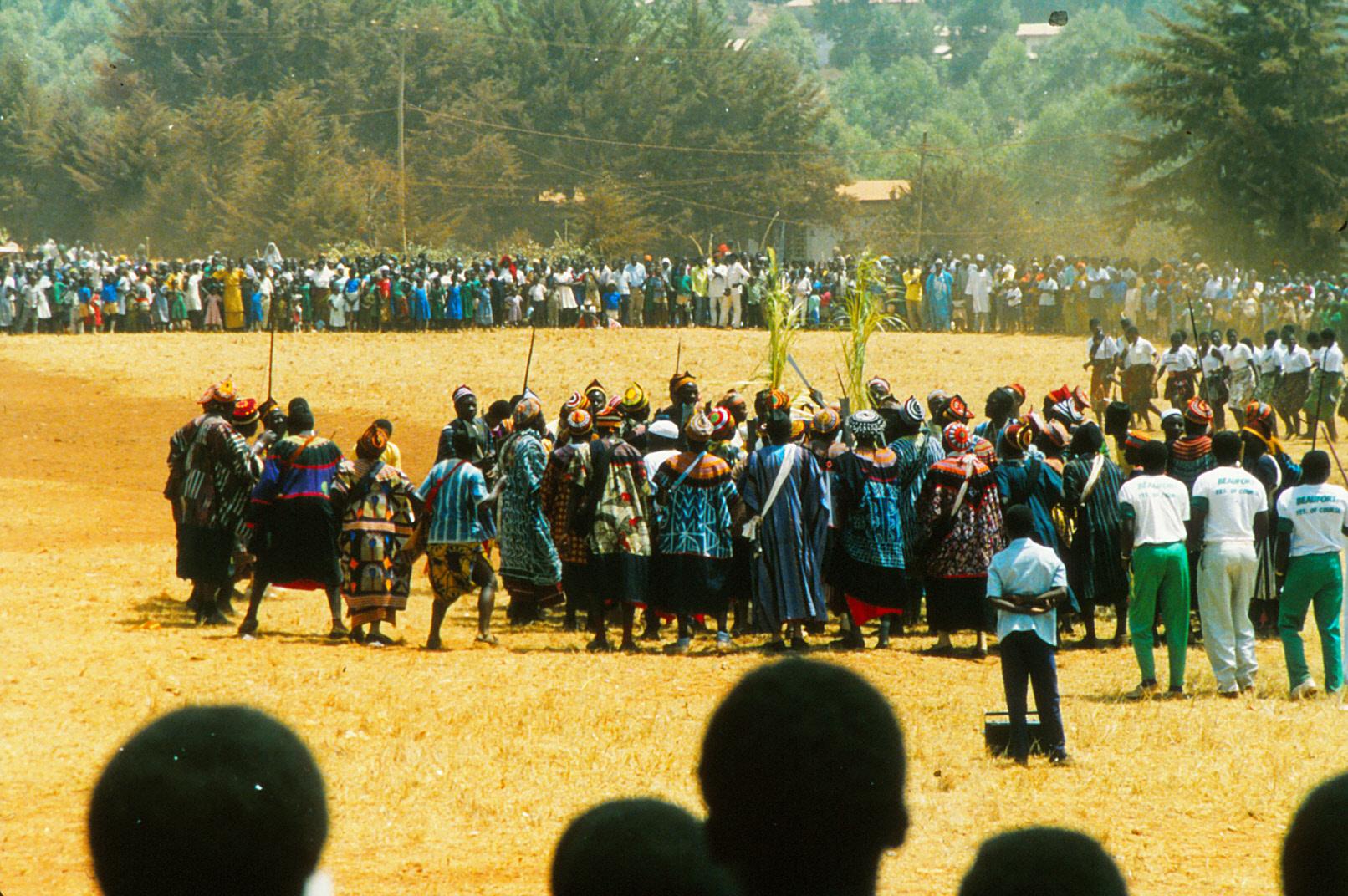YAOUNDÉ, Cameroon – Barely a week after the people of Nso in Kumbo Diocese in Cameroon’s North West region petitioned Bishop George Nkuo over what they considered the desecration of their culture by the Catholic Church, it was the turn of the Wimbum people of the same diocese to lay similar complaints.
However, the Wimbum people directing their anger not only towards Church authorities, but also at their own people who participate in what they call the “desecration of our traditions.”
In an “Order to Preserve Wimbum Traditions,” addressed to the people of the community on July 19, the custodians of the traditions expressed disgust that “some among us participated in the desecration of our traditions by engaging in church activities that encroach upon our cultural practices.”
“We unequivocally condemn these actions. Our traditions are not mere rituals; they are the lifeblood of our identity, connecting us to our ancestors and shaping our existence,” they write.
“Any violation of their sanctity undermines our collective soul,” the document says.
They called on all Wimbum sons and daughters to “refrain from engaging in any church activity worldwide that compromises our cultural integrity. This includes masquerade-related practices, secret society rituals, and sacred artifacts.”
RELATED: Nso people warn Cameroon bishop against adulterating their culture
Defaulters, they warned, could face various sanctions, including excommunication from the village.
In a July 17 letter to the Vatican’s Dicastery for the Doctrine of the Faith, the guardians of Wimbum tradition complain their culture, “steeped in ancient practices, faces a critical threat due to cultural appropriation [by the Catholic Church.]”
It says the Wimbum people “hold sacred rituals, symbols, and ceremonies. These connect us to our ancestors, our land, and the divine. Our traditions are not mere customs; they shape our identity and guide our lives.”
But recent actions by the Catholic Church, they complained, is putting all that in jeopardy. They said the Church is now incorporating elements from the community’s secret societies “into their processions.”
“These processions are outright copyright of our traditional sacred societies and artifacts,” the letter states.
They call on the Vatican to develop clear directives on cultural sensitivity and appropriation within the Church, raise awareness among clergy and parishioners about the impact of appropriation, advocate for the preservation of indigenous cultures, acknowledge “the sacredness of our practices and refrain from appropriating them, educate clergy and parishioners about our traditions, and engage community representatives in dialogue to find common ground.”
“Our traditions are not entrusted to the Church’s care; they are our soul’s essence,” they write
“We issue this plea with urgency: Any further desecration risks irreparable harm and potential conflict. We implore the Vatican to act decisively, respecting the boundaries that safeguard our heritage, “they warn.
Father Christopher Eboka, Communications Director at the Diocese of Mamfe in Cameroon’s South West Region, said the simmering conflict between tradition and Christianity is wholly uncalled for, if both sides made an effort to understand each other.
“Christianity is a religion which is supra-cultural,” he told Crux.
“And because it is supra-cultural, it accommodates all cultures. It is just like water that you put into different containers. The water is going to take the shape of the container into which it is put,” the priest said.
Eboka explained that Christianity only comes to give more meaning to culture.
“It is unfortunate that some of us see it as ‘a white man’ religion,” he said.
He noted that Christianity helps to shine the light of the Gospel on culture. He cited the example of the Ekpe masquerade in South West Cameroon which in its original form was meant to be “the traditional police.”
“The work of Ekpe is to make sure that there is order in the society,” he told Crux. But it has been infiltrated by people filled with hate and greed, and who use it to hurt their enemies, probably through witchcraft.
“What the gospel does is to identify that witchcraft part, that part which is brought in by human weakness and shed light on it so that Ekpe remains Ekpe,” Eboka said.
He noted that culture itself is neutral, but human weakness has splattered that neutrality and made it negative.
“It is this human weakness now that the gospel values are coming to identify and then help us eradicate so that I can still be an Ekpe man, but not practice witchcraft,” the priest explained.
He underscored the need for ministers of the Gospel to be open-minded, noting that it is for that very reason that Catholics have courses on African Traditional Religions in their seminaries.
“The reason why we study African traditional religion is so that we understand the why of our culture and so we can use the gospel light to shine on it so that it gives it a clearer meaning.”
“So, Christianity is not coming to swallow African traditional religion so that it does not exist anymore. No! It is coming to make African traditional religion better than it has been before,” the priest told Crux.














